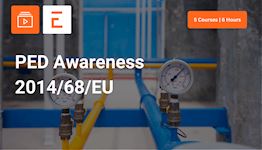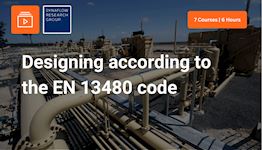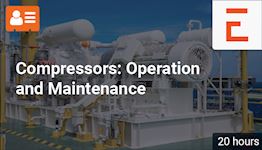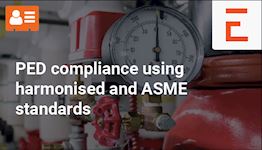Pumps: Operation and Maintenance
Why take this course?
This self-paced course provides comprehensive training on the operation and maintenance of all major pump types – from centrifugal and rotary to reciprocating pumps. Explore key components, cavitation prevention, and application-specific suitability. The 16-hour curriculum is delivered through engaging video lectures and reinforced with quizzes. Successful completion earns a certificate with associated PDH credits for your professional development.
What you'll learn
After this course, you...
• are able to identify the various types of pumps and their characteristic operating curves,
• can identify individual pump components and describe their functionality,
• know how to select a pump for a given application and installation,
• are able to implement proper procedures for the overhaul service, rigging, disassembly, inspect and reassembly,
• know the maintenance procedures and troubleshooting techniques for diagnosing, predicting and preventing common problems associated with pumps,
• have seen how to select and maintain the internal and external seals of a pump,
• are familiar with how to troubleshoot and maintain pump bearings and couplings.
About the course
Pumps are found throughout an industrial plant, having roles in production, transportation and storage. This training course covers all types of pumps both dynamic pumps, for example centrifugal pumps, and positive displacement pumps, such as gear, screw and reciprocating pumps. The focus of the instructor is to familiarize participants in how to operate and maintain the whole spectrum of pumps.
First centrifugal pumps are handled and here participants are shown all the main components, including the influence of impeller design, clearance and the Lomakin effect, shafts and shaft run-out, how to avoid cavitation and how to replace the packing rings. Rotary pumps then form the basis of the next course, the different types are explained and for which application they are suitable; including lobe versus internal gear pump and the screw pumps of 1 to 3 screws. Plunger, piston and diaphragm reciprocating pumps are then explained, and it is shown how a pulsation dampener is used to suppress the pulsations from these pumps.
The course is formed of 10 modules split across 16 training hours. All modules will be live sessions with the instructor. This training course is available as a company in-house training only; there is a choice between an online training or an onsite training. All training materials will be available through your EngineeringTrainer account.
Meet your instructor
Dimitris Antoniadis
Power Plant Maintenance Manager
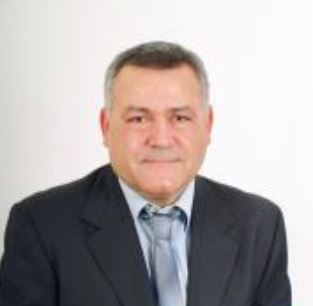
Who should attend this course
Engineers and technicians that work with pumps at Power Plants, petrochemical plants, production oil/gas fields and process plants:• Rotating equipment, machinery, plant, maintenance and mechanical engineers, supervisors, foremen.
• Operating and maintenance personnel.
Prerequisites
Engineering B.Sc diploma or equivalent, or 5 years practical experience with CompressorsProgram & Details
-
Introduction to Pumps
Live
1. Function of a Pump
2. Types of Pump
3. Dynamic Pumps versus Positive Displacement Pumps -
Introduction to Centrifugal Pumps
Live
1. How does a Centrifugal Pump work?
2. Axial, Radial and Mixed Pumps
3. Specific Speed and Pump Type
4. Standards and Codes
5. API 610 Pump Classification -
Centrifugal Pump Compressors
Live
1. Shafts
2. Impellors
3. Shaft Seals
4. Packing Rings
5. Multistage Impellers, Balancing and Balance Drums
6. Volute Design and Radial Loads
7. Clearances
8. Design of Pump-Suction Side Piping
9. Design Nozzle Loads -
Pump Capacity
Live
1. Pump Capacity
2. Pump Head
3. Efficiency and Power Output
4. Pump Specific Speed
5. Flow, Head and Power Coefficients -
Centrifugal Pump Operation and Troubleshooting
Live
1. Pump Assembly Report
2. Checking Bearing Related End Play and Run Out
3. Checking Shaft Related Run Out
4. Centrifugal Pump Repair and Overhaul
5. Assessing the Mechanical Condition
6. Pump Control System
7. Cavitation
8. Net Positive Suction Head (NPSH) -
Rotary Pumps (Positive Displacement Pumps)
Live
1. Rotary Pumps versus Reciprocating and Centrifugal Pumps
2. External Gear Pumps
3. Internal Gear Pumps
4. Lobe Pumps
5. Vane Pumps
6. Gerotor Pumps
7. Screw Pumps -
Reciprocating Pumps (Positive Displacement Pumps II)
Live
1. Classification of Reciprocating Pumps
2. Piston Type
3. Indicator Diagram
4. Check Valves
5. Plunger Pumps
6. Packing
7. Pulsations and Pulsation Dampeners
8. Metering (Diaphragm) Pumps -
Pump Applications
Live
1. Production Pumps; Field Gathering, Heater Treater Charge, Free Water Knockout , Desalter Bottoms and Multiphase
2. Transportation Pumps; Suction Booster, Mainline ShiPiping, Pipeline Re-injection, Scraper Trap and Chemical Injection
3. Storage Pumps; Tank Loading & Unloading, Blending, Tank Circulation, Emulsion Transfer and ShiPiping
4. Mud Pumps -
Pump Installation
Live
1. Foundation Preparation and Pouring
2. Baseplate and Grouting
3. Pump Case Expansion -
Control, Performance and troubleshooting
Live
1. Vibration Limits
2. Seal Degradation
3. Troubleshooting of Centrifugal Pumps
4. Troubleshooting of Positive Displacement Pump
5. Troubleshooting of a Diaphragm Pump
6. Troubleshooting of Reciprocating Pump
7. Small Bore Connections
8. Pulsation Control Devices
9. Dampener Sizing
Certification
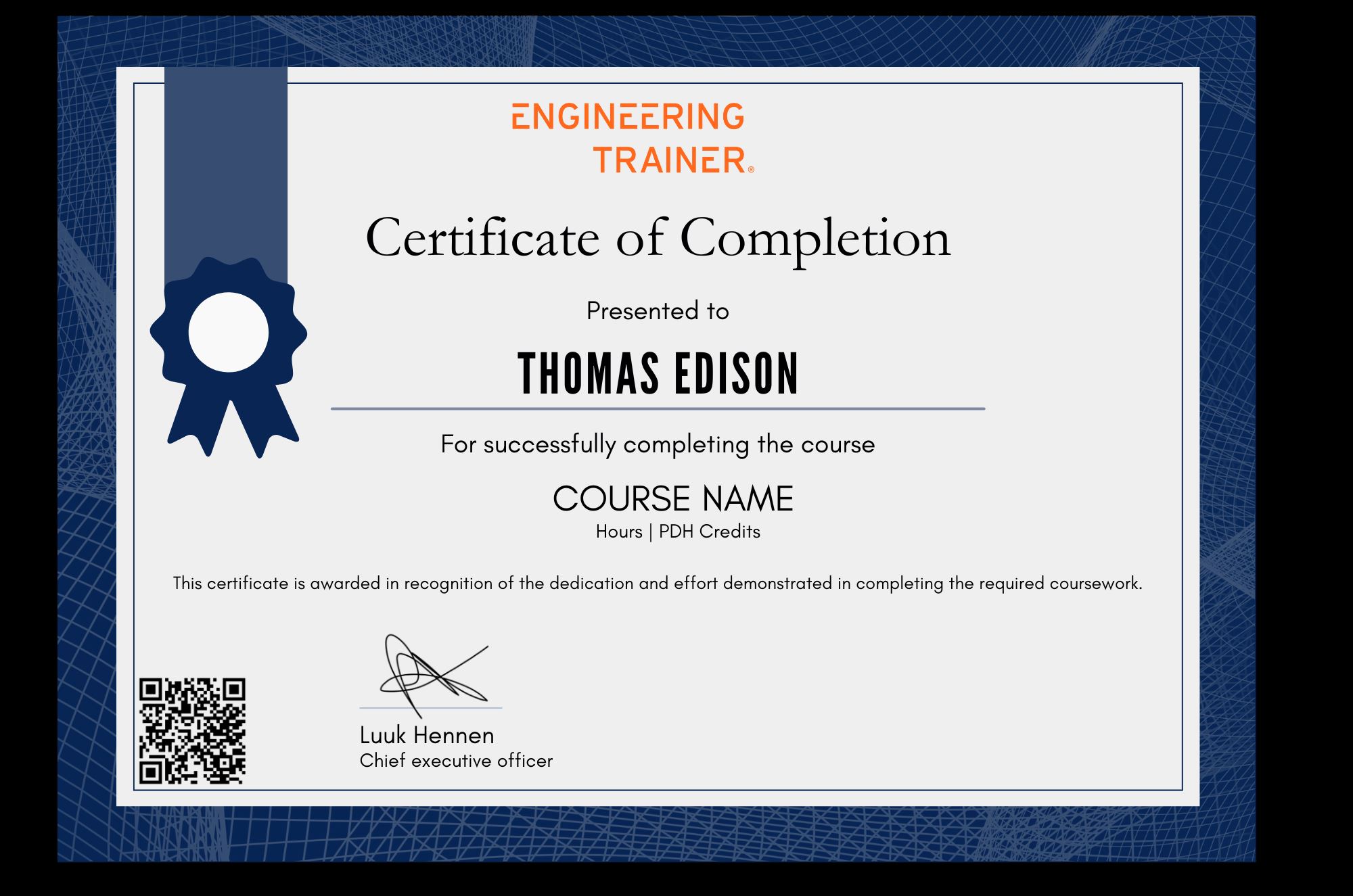

Why choose EngineeringTrainer
-
Unlimited Team-wide Access
-
Advance Technical Competences
-
Courses by Industry Authorities
Since using EngineeringTrainer our internal mentorship has a much more matured character.
Logan Chapman - COO at Chapman Consulting Inc.



